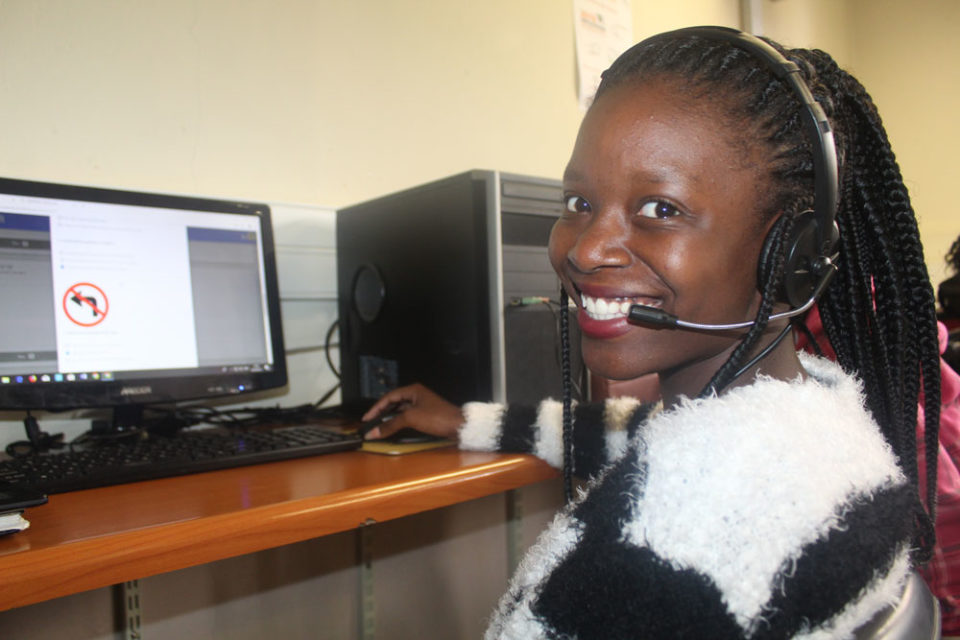Slowly but surely the world’s understanding of how technology will impact future employability is changing. Ongoing research confirms that rather than simply disrupting the jobs landscape, technology will create millions of new jobs.
In fact, while Gartner predicts AI will result in 2.3 million new jobs, Microsoft and IDC research shows cloud computing will create more than 14 million jobs across the world in just three years. But for countries across the Middle East and Africa (MEA) to take advantage of these new opportunities, still greater focus needs to be placed on equipping people for the future workplace.
As with many other countries in the region, youth unemployment in South Africa remains a key challenge. But the nation is hopeful about the role technology will play in driving job creation. Speaking at the Microsoft Annual Trusted Cloud Policy Summit in Rustenburg, South African Minister of Communications Pinky Kekana, was upbeat about the impact of technology on future employment. Microsoft’s recent investment in local data centres in Cape Town and Johannesburg, for instance, is expected to create 100 000 new jobs.
These promising figures make it all the more important for both public and private sector entities to ensure young people across the country have equal opportunity to take hold of future prospects. As it stands, research from the Education Policy Unit of Western Cape shows that over 90 percent of schools in South Africa don’t have access to computers. This makes it difficult for educators to prepare students for the future workplace.
To help address this challenge, organisations like Afrika Tikkun are working hard to empower young South Africans from under resourced communities. Afrika Tikkun empowers young people by giving them the opportunity to access education and grow their skills. What makes the organisation different is its Cradle to Career model of care which focuses on three different developmental stages: Early Childhood Development; Child and Youth Development and Career Development. While younger children learn digital skills by playing games, slightly older ones are taught basic digital literacy skills. Those young people that are interested then have the opportunity to learn more advanced technology skills.
The organisation offers several different programmes to support this developmental process, one of which is the ICT and Computer Science Skills programme.
Matching skills to opportunities
Through the programme, Afrika Tikkun partners with Microsoft to upskill young people with the skills and tools they need to succeed in a tech-first world. Beneficiaries of the programme can access training courses that range from basic to advanced ICT skills. Aside from skills transfer, Microsoft has also gotten involved in the programme by donating software like Office 365 to help Afrika Tikkun enhance its ICT infrastructure. Through Microsoft’s support, Afrika Tikkun has gained credibility as an organisation that provides impactful ICT programmes.
To reach as many youth as possible a variety of different grants have been established. This includes YouthWorks, which is a one-stop platform for job seekers, training organisations and employers. Skills Training for Jobs of the Future is another grant that provides youth with access to skilling opportunities, resources and mentorship, focusing on high-tech skills in demand on the local job market.
Together Microsoft and Afrika Tikkun have helped more than 20, 000 youth and supported 45 NGOs from impoverished communities across South Africa. In the six years that the partnership has been in place, over 16, 500 students have graduated and more than 2, 500 have already been placed in jobs or apprenticeships.
Providing hope to young South Africans
Eric Ndlovu is one of these beneficiaries. The 24-year old was forced to leave university because of financial constraints, making it almost impossible for him to find a job. Though he applied for numerous different positions, he didn’t hear back from a single employer. With the added responsibility of helping take care of his family, Eric simply didn’t know what to do next.
It was then, however, that Eric learned of the Career Development Programme at Afrika Tikkun. Through the programme, Eric has learned a variety of different coding languages, enabling him to create and design basic website pages.
The result? Just one week after completing the course, Eric received a job offer to create websites for start-up companies. Having gained more than just a job, Eric now earns an income he can use to support his family.
And Eric is not the only one who has benefitted from the programme.
Growing the region’s digital economy is about so much more than simply putting current and future workers through digital skills programmes. Rather it’s about fostering demand-driven skills development that will see young people across the region successfully employed as active contributors to the digital workforce of tomorrow.





